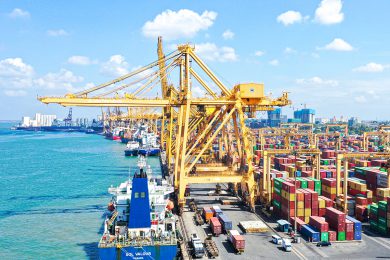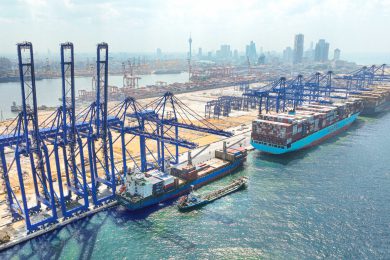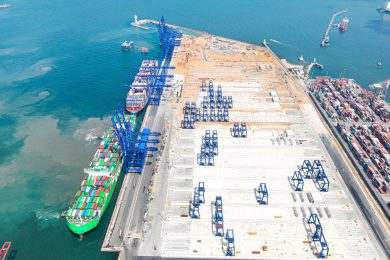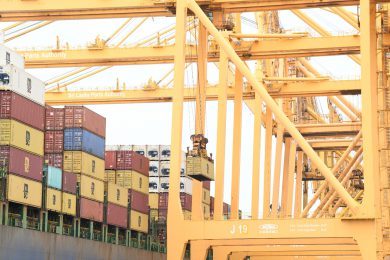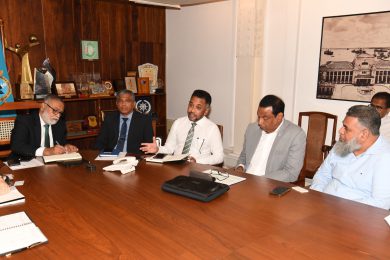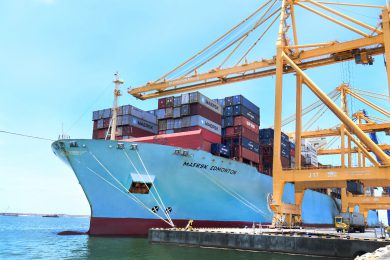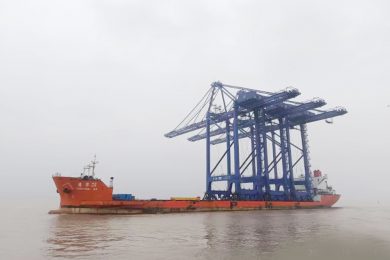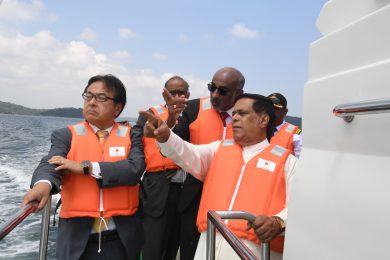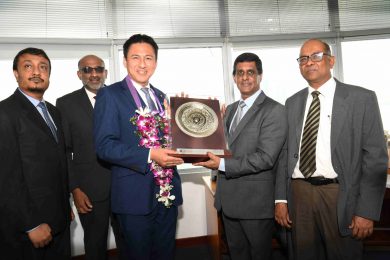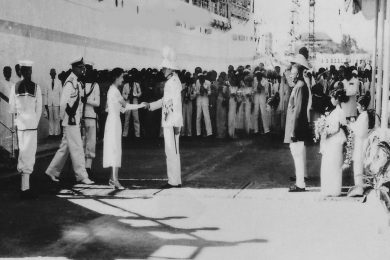Efforts are being made to establish digitalisation in port operations, significant progress has been made in the Saudi region.
by Jasleen Mann
At the Saudi Maritime Congress 2022 in September, panelists discussed port facilities and services which optimised port calls and overcame congestion, while also considering sustainability and the environment in these developments.
The panel discussed the importance of being able to implement new structures in order to deal with new increased carbon capacity.
Abdulaziz Mubarak Al Balooshi, CEO of Fujairah Terminals, Abu Dhabi Ports , said: “We have developed a port community system and recently launched a logistics platform that is used by all entities and stakeholders. It is a platform to exchange information and data which is easy for decision making.”
The digitalisation of ports and terminals can impact supply chains in a positive way. After Covid, ports which incorporated digitalisation appeared to have a better chance at challenging the issue of port congestion. It is clear that as in many industries, Covid had accelerated the move towards digitalisation in the maritime industry as well.
Prior to the pandemic, many people avoided considering cloud solutions and other innovative solutions but these methods are now recognised as being efficient.
Dr Tarek Shaalan, industry advisor expert, Cargo , Transportation & Logistics EMEA South at SAP , said: “The maritime industry was late to adopt technology but with what happened with Covid, the move towards digitalisation is getting faster.
“In addition to that, 5G has created lots of opportunities for ports to implement new technologies. This industry is overwhelmed with data so the use of 5G will allow us to analyse more of this data quickly.”
However, digitalisation within the maritime industry can be viewed as a challenge. This can be due to the size of the industry and bringing all the components together.
Lars Greiner, associate partner Middle East and Africa at HPC Hamburg Port Consulting , said: “Transportation is mostly a communication industry. How we communicate with each other to make this trade to move Cargo in the first place.”
There are various possibilities in terms of the use of technology in the maritime industry. For example, digital dashboards to analyse where Cargo is or digital maintenance apps to use AI and predict how maintenance is required.
The aim of the industry is to have all of the relevant apps working together and complementing each other. A key focus of the industry is collaborating on an effort to make the supply chain more professional.
Sustainability is also a key consideration in the maritime industry and the innovative technology can help to remove some of the environmental issues which need to be addressed.
In terms of the production of green fuel, the Port of Fujairah will receive a green facility for LNG from ADNOC (Abu Dhabi National Oil Company). Sustainability and green initiatives are an important consideration in port operations.
Digitalisation and sustainability need to be considered alongside one another. Hamburg Port Consulting has conducted various studies relating to what new fuels can be found in the market and how they will be introduced to the market. Ports will need to assess vessels and fuels.
Port congestion, such as seen in China, can lead to significant damage to the environment. For this reason, digitisation is an important solution as it can reduce port congestion as well as other concerns relating to the environment.
Shaalan said: “Another angle for sustainability is autonomous ports or the use of autonomous vehicles because ports who have autonomous vehicles have the ability to decrease power, shut lights at night which decreases power consumption by at least 20%.
“This is proven in many ports such as Hamburg, Singapore and Dubai. Being more efficient will help to be more sustainable and environmentally friendly.”
It is possible for ports to reach carbon neutrality and maintain high productivity. For example, the port in Hamburg is now completely electric.
There are many aspects of the marine industry which are still not using digitalisation. Spreadsheets are still being used and logbooks are still handwritten which demonstrates this lack of change.
Innovation will include global networks where the industry can communicate. In the Saudi region, a lot of connectivity has been considered already.
[The writer works for Ship Technology, where this piece originally appeared.]
Disclaimer: The views and opinions expressed in this article are those of the authors and do not necessarily reflect the official policy or position of the publisher



